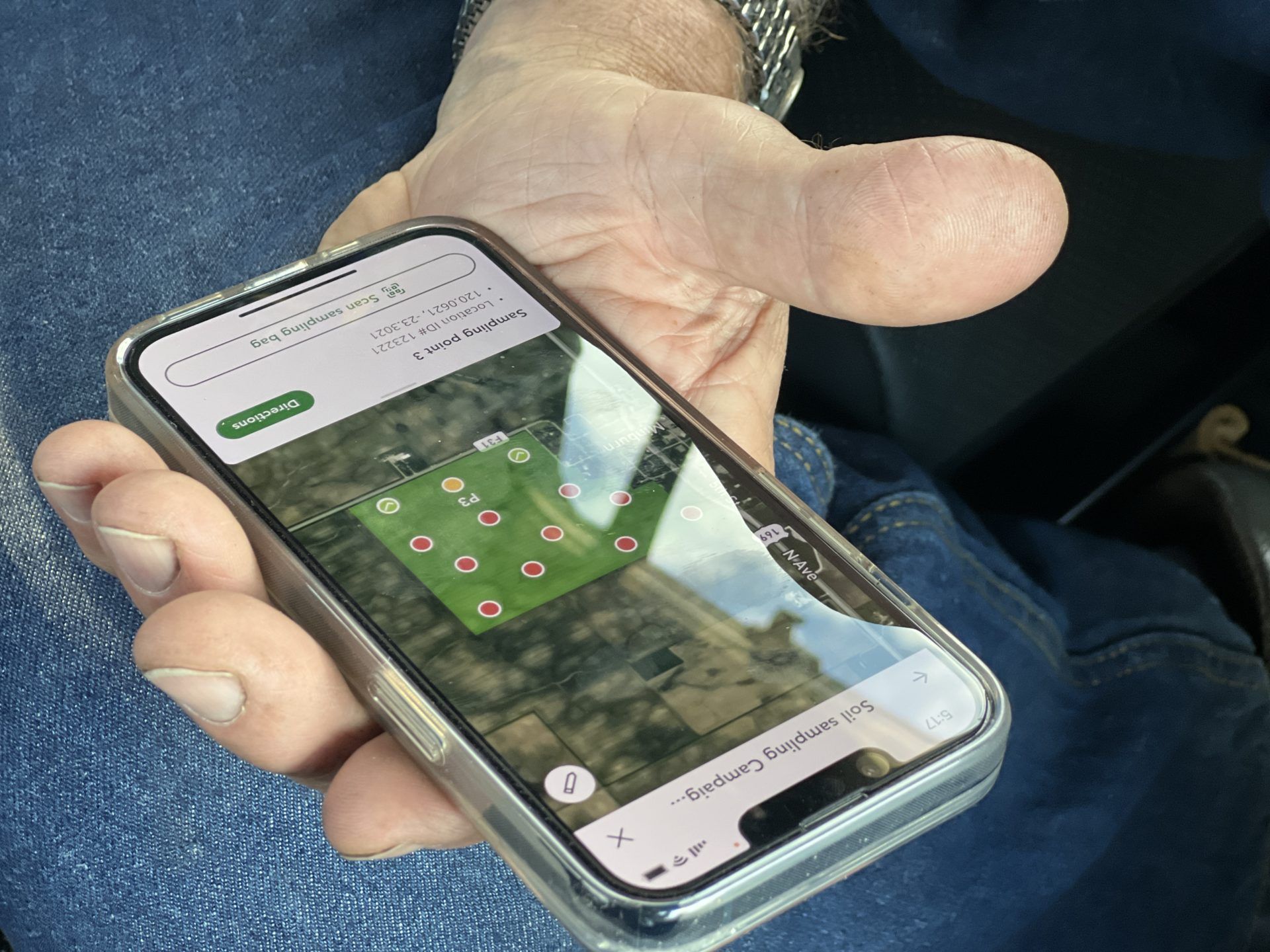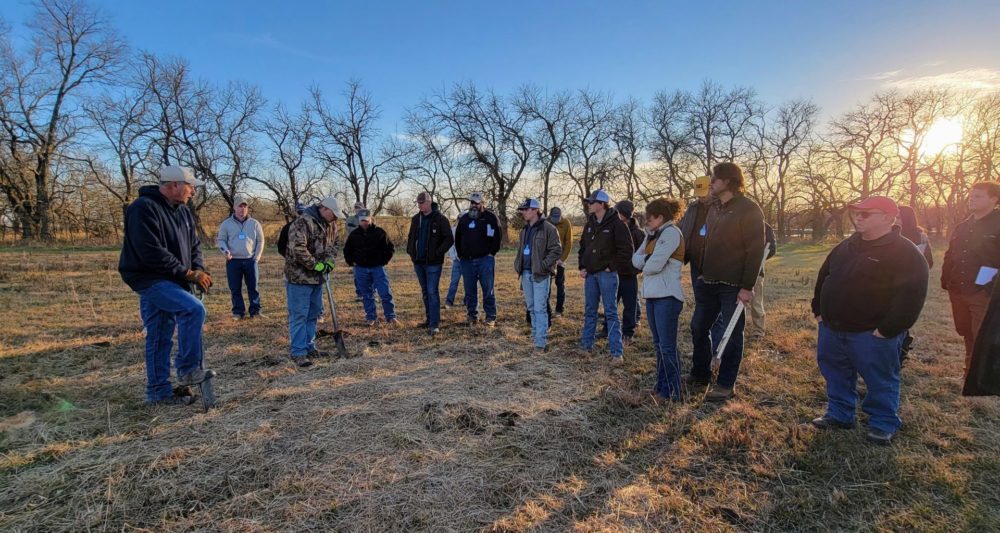- Canadian crop protection startup Terramera has launched a new subsidiary, enrichAg, which uses novel sensing technology to make soil analysis faster and easier for farmers.
- At One Ventures has led a $6 million seed round to commercialize enrichAg’s soil testing and analysis platform.
- Enabling farmers and agronomists to self-test and analyze soil could open the door to huge costs savings on fertilizer as well as a greater chance to participate in carbon markets and make extra revenue.

How it works:
Once it’s commercialized, enrichSoil will allow farmers and agronomists to conduct their own soil tests for levels of nitrogen, phosphorus, potassium and carbon.
The enrichSoil platform is powered by Terramera’s Intelligence Engine, originally launched to help farmers measure soil carbon. The enrichAg stack also uses novel sensing technology, computational chemistry and machine learning.
Together, these elements allow the user to collect data “down to the level of molecules at a million times higher resolution,” Terramera CEO Karn Manhas tells AFN.
The sensor can go directly into the field. Digital maps show results across fields and over time.
He compares soil testing to mobile phone cameras over the years. We’ve evolved from passable, albeit low-res, flip phone images to sophisticated smartphone images that can drill down to nose hair-level detail.
“It’s a breakthrough in hardware, but even bigger breakthroughs in signal processing and computational chemistry software and AI,” he says. “It allows us to take that signal and understand exactly what we’re looking at and track the molecules and the composition of that soil, from carbon content to nutritional content to everything else that’s in the soil.”

Digging past the limits of current soil tech
“Soil is probably the biggest challenge of our generation,” says Manhas. “If we can focus on the health of the soil, we not only drive economics, productivity, better nutrition, better resiliency, but a climate solution. So the key thing has been for us to be able to really understand how we can track and measure what’s happening in the soil.”
Manhas is hardly alone in this endeavor, given the number of soil-focused startups out there. He says enrichAg differentiates itself by addressing three key problems with existing soil analysis technology.
Accuracy
“It’s accepted that we have 40 to 60% margins of error,” Manhas says of current soil testing technologies. That makes it “really hard to be able to manage with that much margin of error.”
The poor margin makes it difficult to take action around applying inputs and selling on carbon markets, among other things.
The higher degree of accuracy enrichAg claims for its testing allows farmers to better understand their soil and tailor decisions around that.
For example, a farmer might find that only part of a field needs a nitrogen boost, and can apply fertilizer accordingly. This in theory also cuts down on costs for farmers.
Greater accuracy could also be hugely beneficial when it comes to measuring soil carbon and selling on carbon markets.
Cost
Current soil testing technologies are prohibitively expensive in many cases.
“A little over half of farmers in the US will will do soil testing, but they’ll only do it once every three to four years,” says Manhas. “And they just use it to kind of you know get a general sense of like what what is where is the fertility levels. It’s just so expensive they can’t use it for precise recommendations.”
Speed
Right now, a farmer or agronomist must take a soil sample and ship it off to a lab.
“It takes weeks to do the process, months for them to get back,” says Manhas. “Then the results come in this pdf-like data that you have to figure out what to do with it.”
All of this makes it difficult for farmers to take a sample, get and analyze results and make adjustments to operations and fertilizers within the same farming year.
“Having instantaneous results has a huge economic value to farmers to be able to make decisions or use it to help make decisions for this particular season,” he says.
Along with this, he says the results of samples are far easier to understand.

What’s next for enrichAg
Commercialization is the enrichAg’s current focus, and where the bulk of the seed funding will go. The company has launched an alpha product via a partnership with “one of the world’s largest regenerative agriculture networks.”
A beta product is in the works, while a limited commercial launch is slated to happen in 2023.
“EnrichAg is going to be laser-focused on using this technology specifically to understand the actions that provide economic returns for the farmer,” says Manhas. “Funds are going to be used to launch and get out to the market this highly accurate. proprietary soil analysis platform to measure soil composition including NPK and carbon and beyond.”
Meanwhile, the company plans follow-ons to complete its current round to a maximum of $15 million. A close for the round is planned for this year.




